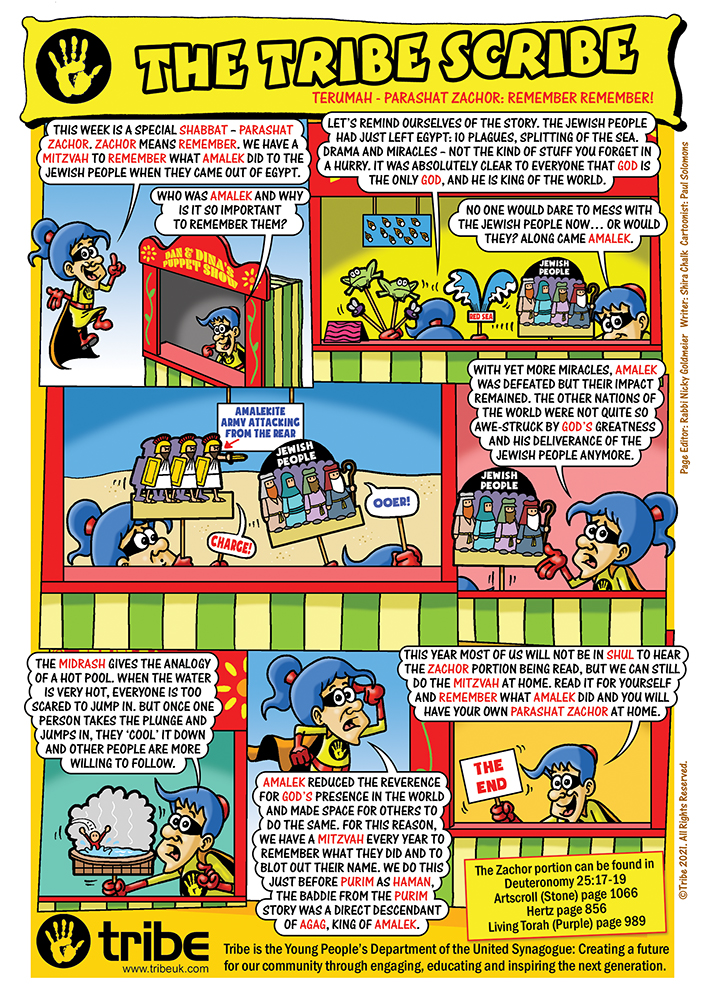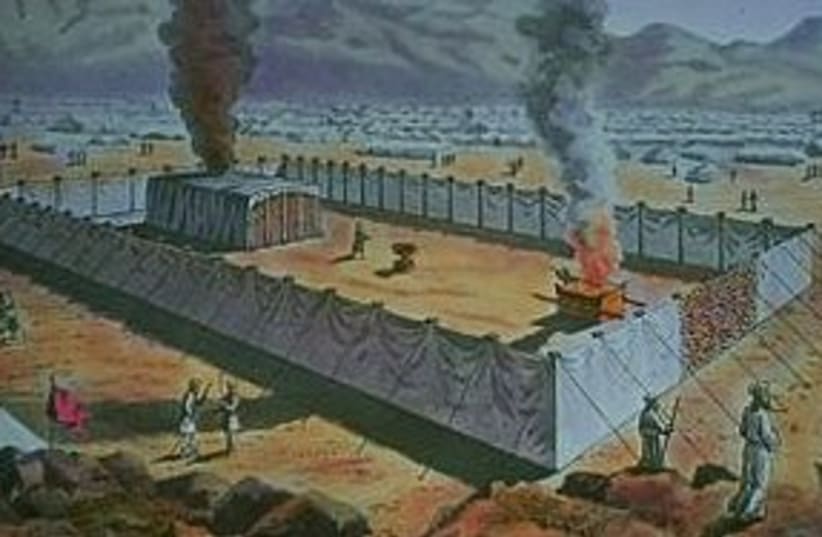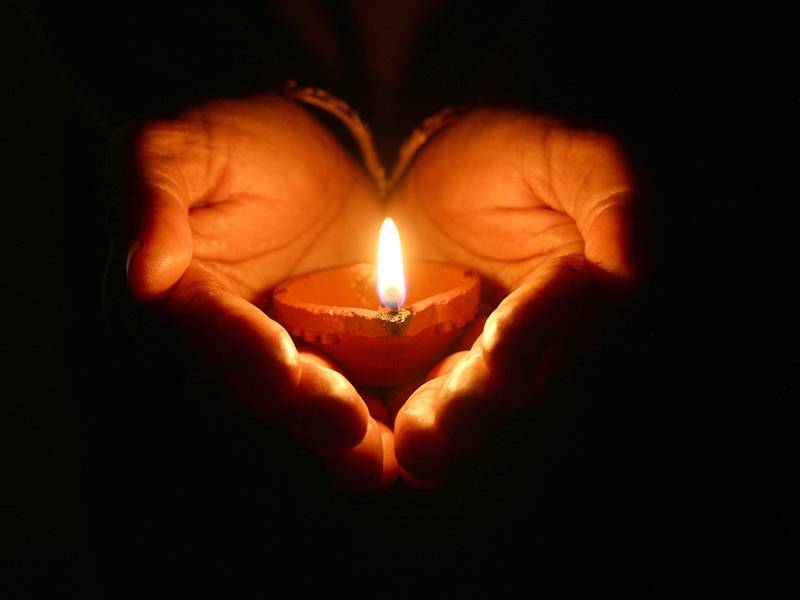Bonjour / Hello [nickname_else_first_name],

Shabbat Shekalim (“Sabbath [of] shekels” שבת שקלים) read in preparation for Purim, requests each adult male Jew contribute half of a Biblical shekel for the upkeep of the Tent of Meeting. The Torah portion Exodus 30:11-16 is read. This Shabbat takes place on the Shabbat before the 1st of the Hebrew calendar month of Adar, or on the 1st of Adar itself if it falls on Shabbat. In leap years on the Hebrew calendar, when there are two months of Adar, Shabbat Shekalim is on the Shabbat before the 1st of Adar II (or on the 1st of Adar II itself if it is Shabbat).
Table of contents
1) Perashat Hashavoua - Rabbi Eli Mansour
2) Halakhat Hashavoua (Halakhot related to day to day life) By Hazzan David Azerad -
The Content of the Shema Paragraph - Peninei Halacha
3) Holy Jokes!
4) For KIDS

This Week's Parasha Insight with Rabbi Eli Mansour
Parashat Teruma: Joining Together to Build the Mishkan
Parashat Teruma begins with G-d’s command that Beneh Yisrael donate materials for the construction of the Bet Ha’mikdash. Interestingly, He issues two commands. First, He instructs that the people should bring a "Teruma" ("donation"), and then He calls upon "every man whose heart stirs him" to bring "Terumati" – "My donation." How are we to explain these two commands?
Rav Abraham Yehoshua Heschel of Apta (1748-1825), in his work Oheb Yisrael, answered by noting that the word "Teruma" ends with the letter "Heh," whereas the word "Terumati" ends with the letter "Yod." These two letters, he explained, reflect the difference between these two donations. Tradition teaches that G-d created all of existence with the spiritual power of two the Hebrew letters – "Yod" and "Heh." Specifically, He created our world with the letter "Heh," and the next world, the eternal, spiritual world, with the letter "Yod." While we cannot claim to fully understand the concept of creation through letters, it suffices for our purposes that "Heh" and "Yod" are associated, respectively, with the realms of the physical and the spiritual. "Heh" is related to our physical existence here in our world, whereas "Yod" relates to the spiritual realm.
On this basis, the Rebbe of Apta explained the two different donations mentioned in the beginning of Parashat Teruma. Most people gave a "Teruma" – a worldly donation, a donation of gold, silver, and other physical materials. There were, however, especially righteous people – "every man whose heart stirred him" – who donated "Terumati," referring to the "Yod," the spiritual aspects of existence. They lent to the project of the Mishkan their spiritual greatness, and this was their donation.
Rav Pinchas Friedman (contemporary) elaborated on this idea and explained what it means to give a donation of spirituality. The Gemara in Masechet Hulin (7) comments, "Yisrael Kedoshim Hem" – all Jews are holy – and it proceeds to note that there are two groups of Jews. There are those who want to donate money but lack the means to do so, and there are those who have the means but do not want to give. Both groups, the Gemara establishes, are "holy." Rav Zusha of Anipoli (1718-1800) explained this remark to mean that when these different groups come together, they are, collectively "holy." Those who want to give but are unable to, provide the intention and desire, whereas those who prefer not to give, but nevertheless give, begrudgingly, to avoid embarrassment, provide the action. Together, they combine to form the perfect, complete Misva.
This is what the Rebbe of Apta meant. Those among Beneh Yisrael who had materials to donate for the Mishkan provided the "Heh," the actual materials, whereas those who did not have materials donated the "Yod" – their intent and desire to participate. Together, they combined to produce the Mishkan, a structure worthy of serving as the residence for the Shechina.
No single individual is perfect; we gain perfection only by combining with others, by bringing our "letters" together to form the complete Misva. This can only happen through "Ahdut," through genuine unity among different types of Jews, through which we come together to blend into a single, cohesive unit. May we all join together with genuine "Ahdut," and feel a sincere bond with all our fellow Jews, even those much different from us, so we can work together to build our "Mishkan" and become worthy of the presence of the Shechina.

Halachot this week are selected and Translated by Hazzan David Azerad
When Adar Arrives We Increase Our Joy - Peninei Halacha
The Sages said, “When Av arrives we curtail [our] joy, and when Adar arrives we increase [our] joy” (Ta’anit 29a). In saying this, the Sages teach us that nothing happens by chance and that every season has its character and nature. If both Temples were destroyed on the ninth of Av, it is a sign that the beginning of Av is naturally predisposed to calamity.
And if the miracle of Purim occurred in the middle of Adar, it is a sign that this month can transform bad into good. We feel ordinary joy over the good that exists in the world, but our joy is not complete, because evil and pain are still in the world. However, when even the bad turns good, our joy increases and becomes complete. This is what happened on Purim: God turned the bad into good and saved His people, Israel. This teaches us that everything that happens in the world – even the bad – will eventually become good. The greater our faith and our commitment to the Torah, the closer we bring the ultimate redemption, when all evil will turn into good, and when joy will abound in the world. Since the month of Adar has the unique character of transforming bad into good, “when Adar arrives we increase [our] joy.”
The Sages further recommend (ibid. 29b) that a Jew who has a legal dispute or business deal to settle with a non-Jew should avoid him during the month of Av because that month portends misfortune. Instead, he should try to make himself available for litigation or a business deal during Adar, when the Jewish people experience good fortune.
Bevirkat Shabbat Shalom Umevorach
David Azerad
3) HOLY JoKeS!!
Selection of funny snippets, loosely related to this weeks parashah or current events, to brighten your day



4) FOR KIDS
Click on the image to open the youtube video








 MABROOK!!!
MABROOK!!!





